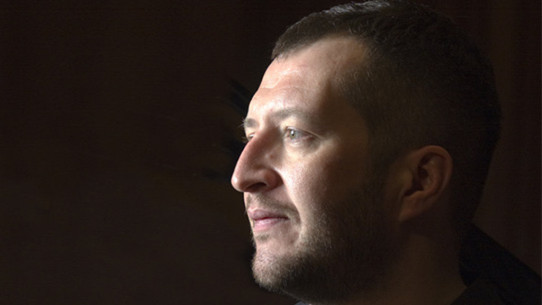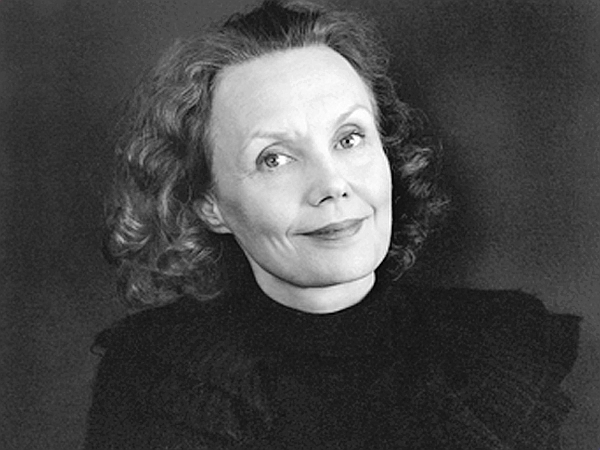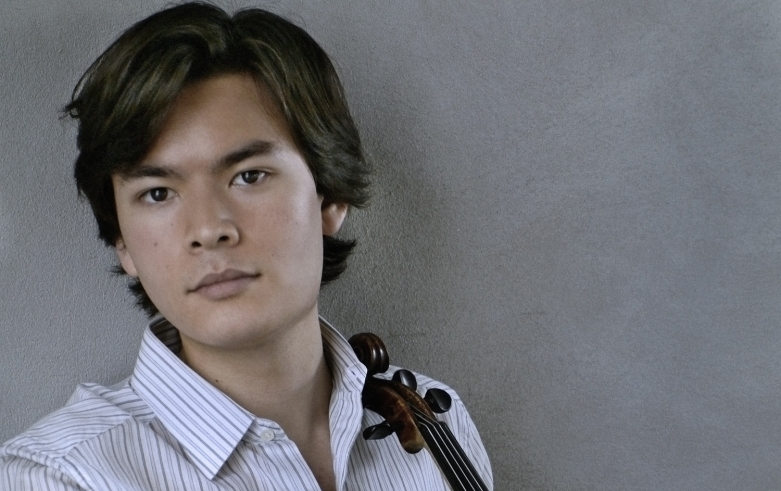Coming Attractions: 2012-13 Boston Orchestral Music Season Preview
On the whole, then, there’s quite a bit to look forward to in orchestral performances this coming season.
By Jonathan Blumhofer.

Among the season’s highlights: Oliver Knussen will lead his own Violin Concerto and WHITMAN SETTINGS.
Late September is usually an exciting time to be in the greater Boston area. In sports, the Red Sox are often enough surging towards the postseason (though, of late, surging in the wrong direction) and the Patriots dominating the AFC. College and university students have returned, and the city streets (and subways) are again teeming with life. And, most wonderful of all, the classical orchestral scene starts to come back to life about a month after the last notes sounded at Tanglewood.
Of course, the Boston Symphony (BSO) isn’t the only orchestra in town or even the oldest (that honor goes to the Handel and Haydn Society), but it is, arguably, the city’s main orchestra, especially given its outreach over the years through tours and recordings. So let’s begin this survey of the coming season with the BSO, which returns to action on Saturday evening with an all-Beethoven gala led by Itzhak Perlman.
On the whole, the BSO’s season schedule shows an enticing mix of standard repertoire and less familiar works. Yes, Rachmaninoff is over-represented with two concerti (nos. 2 and 3) and the Rhapsody on a Theme of Paganini, and Tchaikovsky’s bombastic, first piano concerto appears on the schedule in November, but one also has the opportunity to hear concertos by Leonard Bernstein, Erwin Schulhoff, Frank Martin, Benjamin Britten, and Camille Saint-Saëns—and all before Christmas! Similarly, there’s a focus on fifth symphonies, which (of course) could not fail to include the two most over-played Fifths ever written (Beethoven’s and Tchaikovsky’s), but Prokofiev’s turns up, as does Schubert’s (with Bernard Haitink, no less). And Shostakovich is present, too, with his awesome, tragic Fourth Symphony (in October) and first violin concerto (in January).
Among the highlights of intriguing (or potentially intriguing) programming are Charles Dutoit’s two-week residency in October, which includes music by Debussy, Martin, and Rachmaninoff and concludes with a terrific double-bill featuring Stravinsky’s The Nightingale and Ravel’s L’Enfant et le sortilèges; Juanjo Mena leading works by Kaija Saariaho, Benjamin Britten, and Dvorak in November; Thomas Adés conducting his own In Seven Days, along with pieces by Sibelius and Prokofiev, also in November; Alan Gilbert’s January series consisting of music by Henri Dutilleux, Tchaikovsky, Stravinsky, and Ravel; Rafael Frühbeck de Burgos conducting scores by Stravinsky and Haydn; Oliver Knussen leading his own Violin Concerto and Whitman Settings alongside Miaskovsky’s Symphony no. 10 and Leopold Stokowski’s arrangement of Pictures at an Exhibition; and a conductor-less program featuring music by Britten, Michael Tippett, Mozart, and Dvorak. The two sure-fire crowd-pleasers come in late September and January: first, a concert performance of Porgy and Bess with Bramwell Tovey conducting and, to welcome the new year, Verdi’s heaven-storming Requiem with Danielle Gatti on the podium.
Last year, BSO audiences heard a succession of solo violinists grouped towards the end of the season, and they provided some of the best performances of the year. This season, things are spread out a bit better: Joshua Bell, who appeared in a frustratingly inconsequential double concerto by Edgar Meyer at Tanglewood in July, performs Bernstein’s exuberant, underrated Serenade in October, and the next week the magnificent, German-Japanese violinist Arabella Steinbacher plays Mendelssohn’s concerto (again, a piece that appears on programs probably more often than it should, but with a musician of Steinbacher’s abilities and probing intellect onstage, this shouldn’t be a commonplace performance). Gil Shaham comes to town in November playing the Britten Concerto; the ever-engaging Lisa Batiashvilli performs Tchaikovsky’s Concerto with Alan Gilbert in January; Baiba Skride and Renaud Capuçon appear in, respectively, concerti by Shostakovich and Sibelius in February; Pinchas Zuckerman performs Oliver Knussen’s Concerto in April; and the season closes with Nikolai Znaider and the Brahms Concerto in May. Special mention should also be made of the Hawthorne String Quartet performing the Schulhoff Concerto for String Quartet and Wind Orchestra for one night only on October 9, and cellist Lynn Harrell premiering Augusta Read Thomas’s Cello Concerto no. 3 in March.
Pianists are in no short supply, either: Daniil Trifonov plays the aforementioned Tchaikovsky First Concerto in November; Kirill Gerstein appears in Adés’s In Seven Days and Prokofiev’s Piano Concerto no. 1, also in November; the thoughtful and brilliant Stephen Hough returns to Symphony Hall in late January with the Liszt Piano Concerto no. 1; Radu Lupu and Christian Zacharias play Mozart (in February and November, respectively); and Rachmaninoff duties are split between Nikolay Luganski (Piano Concerto no. 3, in October), Garrick Ohlsson (Rhapsody, one concert only on April 2), and the dynamo commonly known as Lang Lang (Piano Concerto no. 2, in late-February and early March). Also of note, French organist Olivier Latry gives the Symphony Hall organ a turn in the spotlight in the Saint-Saëns Symphony no. 3 in March.
This summer at Tanglewood there were four world premieres given by the BSO (three of which were commissioned for the 75th anniversary season), and several more presented by the Tanglewood Music Center Orchestra and fellows performing in the Festival of Contemporary Music. Unfortunately, the Symphony Hall season will only feature one world premiere (Ms. Thomas’s Concerto) and one American premiere (Ms. Saariaho’s Circle Map). Happily, there will still be plenty of twentieth and twenty-first century music with which to grapple between now and May: 20 of the orchestra’s 28 programs contain at least one score written since the 1930s, which, while not quite something to celebrate with a bank holiday, is certainly a step in the right direction.
For somewhat less traditional fare, there are several fine options from which Boston audiences might choose. The first ought to be the New England Philharmonic (NEP). Now in its 36th season, this all-volunteer ensemble features one position the BSO has inexplicably never established: a composer-in-residence drawn from the greater Boston musical community (this year it’s David Rakowski). Each of the four concerts the NEP is presenting this season have strong American associations: Thea Musgrave’s Rainbow and the premiere of Rakowski’s Fourth Symphony alongside works by Richard Strauss and Debussy in the October concert; Copland and Silvestre Revueltas in the December Family Concert; music by Peter Child, Bernard Hoffer, and Michael Gilbertson framing Ralph Vaughn Williams’s Symphony no. 6 in March; and scores by Gunther Schuller, Steven Stucky, and Sibelius bracketing Britten’s rarely heard (and, again, underrated) Piano Concerto in April.
The Boston Modern Orchestra Project (BMOP) and music director Gil Rose also present four concerts at Jordan Hall (in November, February, April, and May, respectively), though program details have not yet been released.
Two of the city’s most exciting ensembles, the Discovery Ensemble and A Far Cry, are among its newest. Both have managed to construct programs over the last several seasons that stand out not only for their musical excellence but also for sheer inventiveness. This coming season is no exception. The Discovery Ensemble’s four programs feature works by Mozart, Piazzolla, Villa-Lobos, and Bach in October; Bartók, Esa-Pekka Salonen (the luminous Five Images After Sappho), and Beethoven in December; Rossini, Stravinsky, and Haydn framing John Adams’s loopy, virtuosic Chamber Symphony in February; and a good, all-German mix to round things out in April (Schoenberg, Beethoven, and Schumann).
A Far Cry began its season earlier this month with a program entitled “Dreams and Prayers” that included music by Hildegard von Bingen and Osvaldo Golijov. The season continues in December with a program that combines works by Einojuhani Rautavaara, Piazzolla, Bartók, and William Walton with Vivaldi’s Concerto for Four Violins. Music by Anton Webern, Kurt Weill, and Benjamin Britten turn up in January; the wonderfully incongruous pairing of Shostakovich with Luigi Boccherini and a premiere by Ted Hearne come in February; Mozart, Vivaldi, and Alexander Borodin accompany Saariaho’s Nymphéa Reflections in April; and Bruckner, Schubert, and more Mozart (the Symphony no. 40) finish things up in May. And let’s not forget the John Cage tribute concert on December 6: three pieces by the birthday boy (he turned 100 on September 5), one by Alfred Schnittke and Haydn’s Symphony no. 45 at the Gardner Museum.
Also, the Boston Philharmonic’s (BPO) four-program season feature a couple of wonderful soloists (violinist Stefan Jackiw in October and pianist George Li in November) and mainly standard repertoire. For my money, the season’s highlight will be the performance of Mahler’s Sixth Symphony in February, though the orchestra’s performance of Beethoven’s Ninth—a score that it hasn’t touched in 22 years (much to the ensemble’s credit)—will likely be a very special event, as well.
Last but certainly not least, the Handel and Haydn Society (H&H), now just two years before its bicentennial season, has a number of programs worth checking out. There are some very rarely performed pieces to look forward to (Purcell’s The Indian Queen in January and Handel’s Jephtha—not heard in Boston for nearly 150 years—in May); an all-Haydn concert in February that features his Violin Concerto no. 4 and the Overture to L’isola disabitata alongside the Symphonies nos. 6 and 82; a program built around Mozart’s Symphony no. 41 in November that pairs the well-known Jupiter Symphony with much less familiar contemporaneous works by Rigel, Kraus, and Haydn; and a Mozart/Beethoven concert in March that showcases the somberly beautiful Masonic Funeral Music and Clarinet Concerto of the former with the Seventh Symphony of the latter.
On the whole, then, there’s quite a bit to look forward to in orchestral performances this coming season. With the BSO searching for its new music director, it is biding its time by both playing to its not inconsiderable strengths and branching out in some healthy ways, and its offerings are well complemented by other ensembles in the area. While, taken as a whole, there may yet be some areas of concern or causes for complaint among these groups, the balance of programs—this year, at least—appears to be distinctly better than not.



